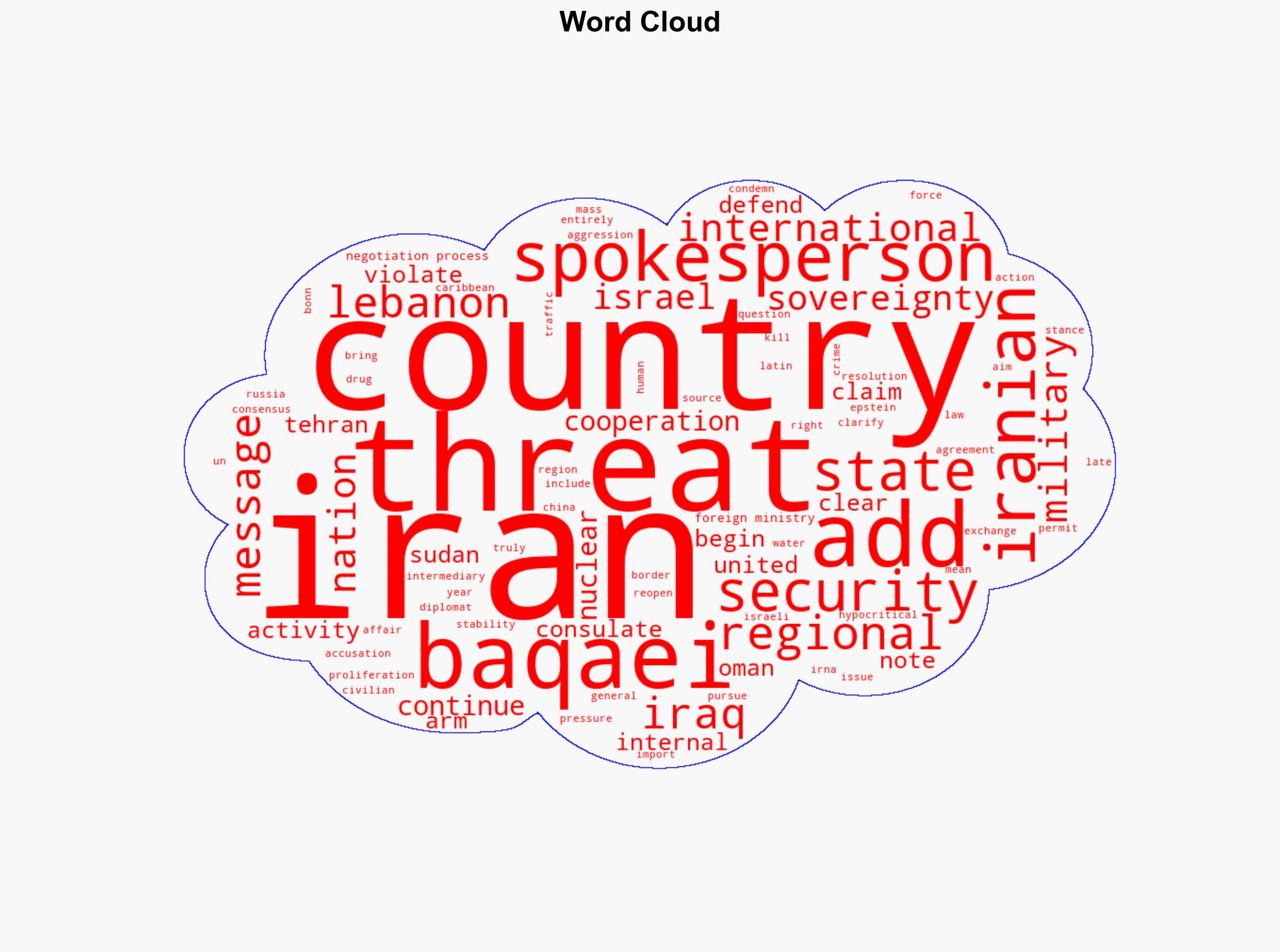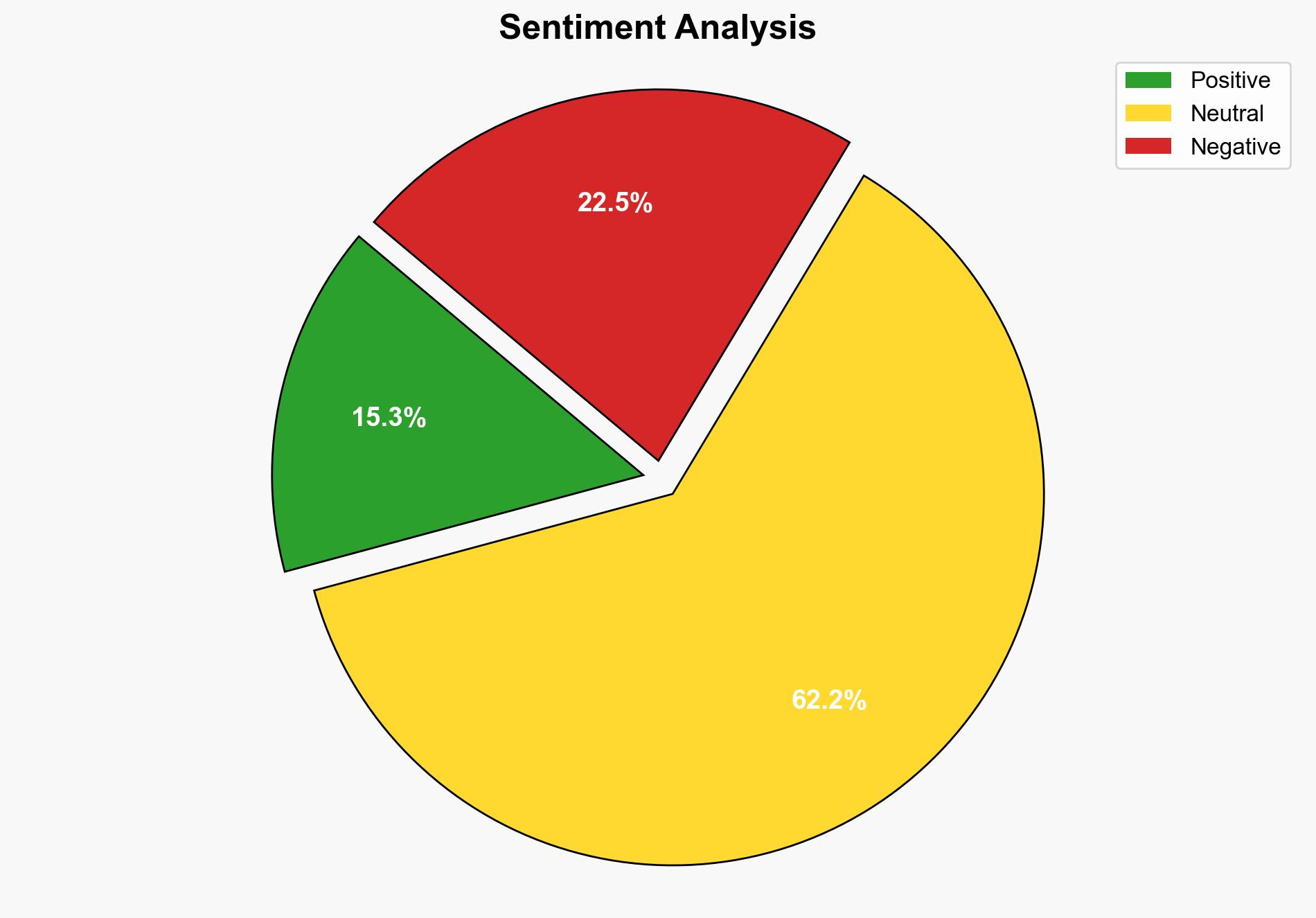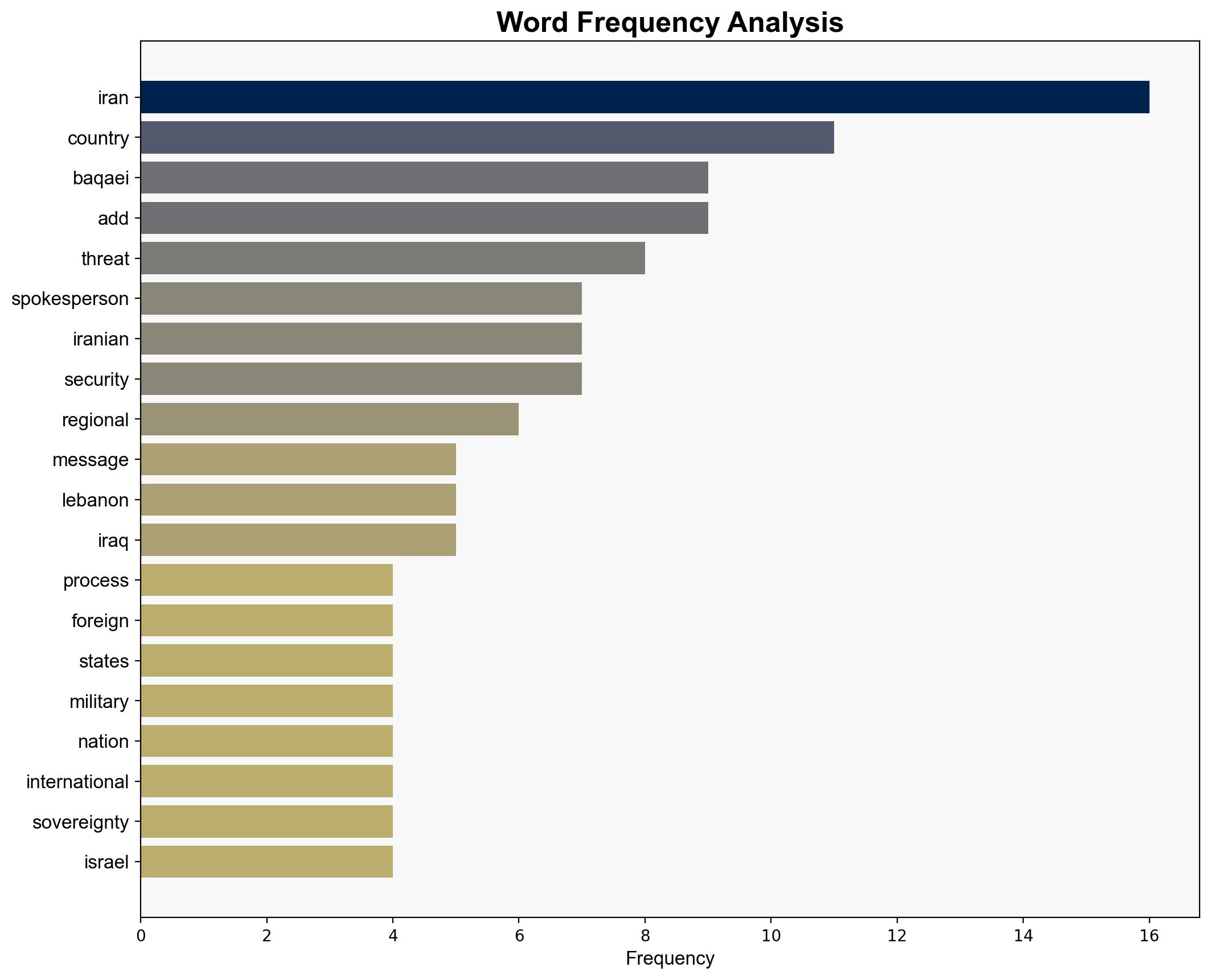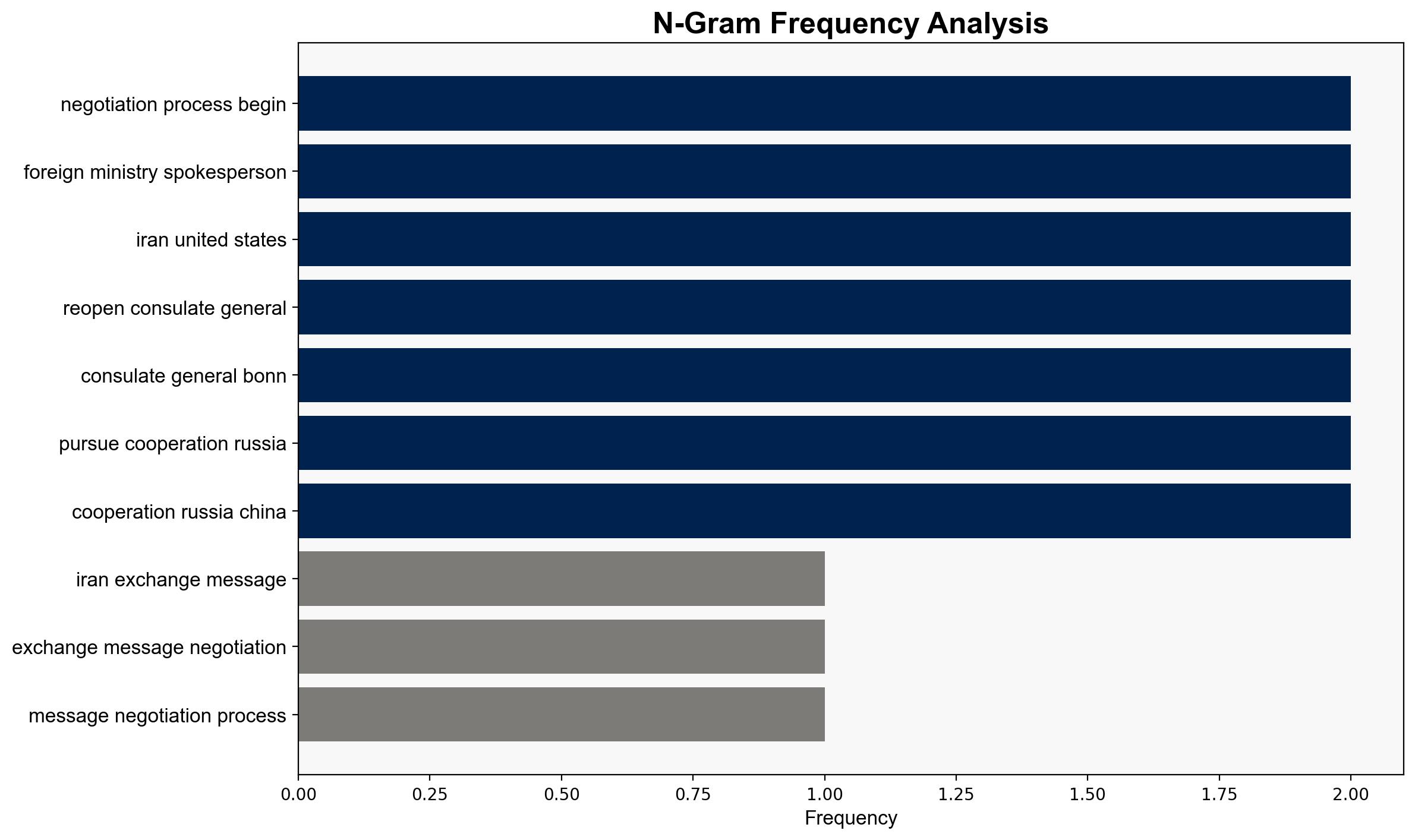Iran US exchanging messages but no negotiation process begun Foreign Ministry – Globalsecurity.org
Published on: 2025-11-04
Intelligence Report: Iran US Exchanging Messages but No Negotiation Process Begun
1. BLUF (Bottom Line Up Front)
The strategic judgment is that while Iran and the US are exchanging messages, there is no formal negotiation process underway. The most supported hypothesis is that these exchanges are preliminary diplomatic efforts rather than substantive negotiations. Confidence level: Moderate. Recommended action: Monitor communications for shifts towards formal negotiations and assess potential impacts on regional stability.
2. Competing Hypotheses
Hypothesis 1: The message exchanges between Iran and the US are preliminary diplomatic efforts aimed at reducing tensions without committing to formal negotiations. This is supported by the lack of direct talks and the use of intermediaries, indicating a cautious approach by both parties.
Hypothesis 2: The exchanges are a strategic maneuver by Iran to buy time and alleviate international pressure without genuine intent to negotiate. This is suggested by Iran’s continued criticism of US military actions and its emphasis on sovereignty and regional security.
3. Key Assumptions and Red Flags
– Assumption: Both parties are genuinely interested in reducing tensions, which may not be the case if strategic posturing is the primary goal.
– Red Flag: The absence of direct communication channels and reliance on intermediaries could indicate a lack of commitment to substantive dialogue.
– Potential Bias: Confirmation bias may lead analysts to overestimate the likelihood of negotiations based on historical patterns of US-Iran interactions.
4. Implications and Strategic Risks
– The continuation of indirect communication could maintain a status quo, reducing immediate risks of escalation but failing to address underlying tensions.
– Potential escalation in regional conflicts if diplomatic efforts are perceived as insincere or if external actors (e.g., Israel) influence the dynamics.
– Economic implications include potential impacts on oil markets and regional trade if tensions escalate or de-escalate.
5. Recommendations and Outlook
- Monitor diplomatic channels for any shifts towards direct negotiations.
- Engage with regional allies to prepare for potential changes in US-Iran relations.
- Scenario Projections:
- Best Case: Formal negotiations commence, leading to a reduction in regional tensions.
- Worst Case: Breakdown in communications leads to increased military posturing and regional instability.
- Most Likely: Continued indirect exchanges with occasional diplomatic overtures but no formal negotiations.
6. Key Individuals and Entities
– Esmaeil Baqaei, Iranian Foreign Ministry Spokesperson
– Majid Takht Ravanchi, Iranian Deputy Foreign Minister
7. Thematic Tags
national security threats, regional focus, diplomatic relations, US-Iran tensions





